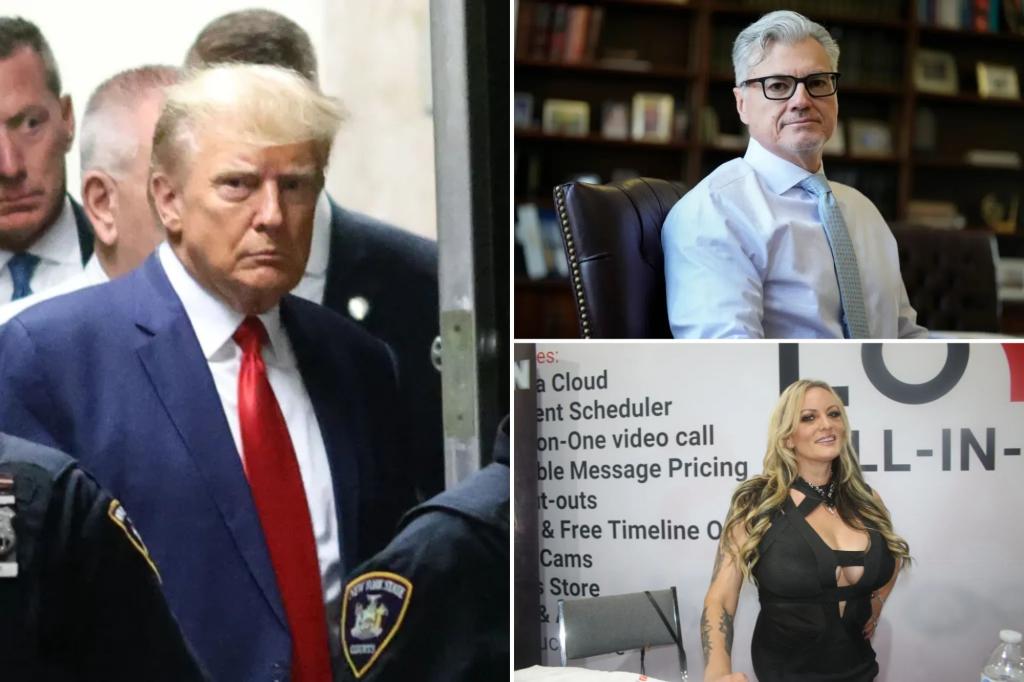Paragraph 1: The Hush Money Case and Immunity Claim Rejection
Former President Donald Trump’s attempt to overturn his conviction in the Manhattan hush money case, citing a Supreme Court ruling on presidential immunity, has been rejected by Judge Juan Merchan. The 34-count conviction, stemming from falsifying business records to conceal hush money payments made during the 2016 presidential campaign, remains in place. Merchan’s 41-page ruling asserts that the evidence used to convict Trump does not infringe upon the authority of the Executive Branch, as the underlying actions predate his presidency. This decision directly counters Trump’s legal team’s argument that the Supreme Court’s recognition of presidential immunity for official acts should invalidate the conviction. The Manhattan District Attorney’s office, led by Alvin Bragg, had consistently opposed the dismissal, emphasizing the pre-presidency timeline of the alleged offenses.
Paragraph 2: Trump’s Response and Legal Arguments
Trump and his representatives have sharply criticized the ruling, labeling it a "direct violation" of the Supreme Court’s decision on immunity and existing jurisprudence. They maintain the case is politically motivated and should be dismissed immediately, asserting that upholding the conviction hinders Trump’s ability to fulfill his presidential duties. Trump’s team had previously pointed to a Department of Justice policy against indicting a sitting president and argued that the conviction would create "unconstitutional impediments" to his governance. They maintain that Merchan is biased against Trump, alleging a conflict of interest due to his daughter’s involvement with Democratic political figures.
Paragraph 3: The Supreme Court Ruling and Its Impact
The Supreme Court’s ruling, which granted presidents "absolute" immunity for official acts while in office, did not explicitly address how it applied to the four pending criminal cases against Trump at the time. Subsequently, one case, related to 2020 election subversion, was dismissed, and another, involving classified documents, was withdrawn by special counsel Jack Smith after being initially dismissed. This leaves the Manhattan hush money conviction and the Georgia election tampering indictment as the remaining active legal challenges against Trump. The Georgia case is currently entangled in appeals.
Paragraph 4: Further Legal Maneuvering and the Prospect of a Presidential Felon
Judge Merchan has yet to rule on a separate motion by Trump’s legal team to nullify the hush money conviction based on his recent presidential election victory. This motion raises the unprecedented scenario of a convicted felon assuming the presidency. If the conviction stands, Trump would be the first individual with a felony record to hold the office. His legal team is pursuing multiple avenues of appeal to challenge the conviction. Simultaneously, the prosecution has proposed the option of delaying any penalties while Trump serves his presidential term.
Paragraph 5: The Hush Money Case and Its Controversial Nature
The hush money case, centered on payments to adult film star Stormy Daniels and others to suppress potentially damaging stories during the 2016 campaign, has drawn both legal and political scrutiny. The case relied on novel legal theories, leading to criticism from both sides of the political spectrum. Some, including Senator John Fetterman, a Democrat from Pennsylvania, have labeled the case as frivolous and advocated for a pardon. Judge Merchan, in his ruling, emphasized the "overwhelming evidence of guilt" presented during the trial.
Paragraph 6: The Ongoing Legal Battle and Political Implications
The Manhattan District Attorney’s office remains steadfast in opposing any attempts to overturn the conviction, suggesting a potential postponement of any consequences until after Trump’s presidential term. Federal law prohibits the imprisonment of a sitting president in this context. The clash between Trump’s legal team and the prosecution, coupled with the unique legal and constitutional questions raised by the case, highlights the complex and potentially historic implications of this legal battle. The accusations of bias against Judge Merchan further contribute to the politically charged atmosphere surrounding the proceedings. The unresolved legal challenges, particularly the appeal of the hush money conviction and the ongoing Georgia case, will continue to shape the political landscape and Trump’s future.

